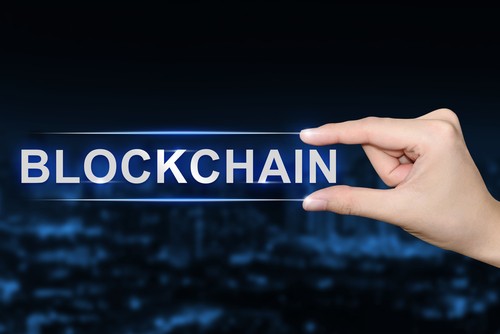Don’t invest unless you’re prepared to lose all the money you invest. This is a high-risk investment and you are unlikely to be protected if something goes wrong. Take 2 minutes to learn more
Every day the media will be flooding with buzzwords. Bio-engineered crops, Artificial intelligence, biometric IDs, and Blockchain technology is the standout of them all.
Our Crypto Signals
1-month subscription
 Up to 5 signals daily
Up to 5 signals daily 76% success rate
76% success rate Entry, take profit & stop loss
Entry, take profit & stop loss Amount to risk per trade
Amount to risk per trade Risk reward ratio
Risk reward ratiomonth
3-month subscription
 Up to 5 signals daily
Up to 5 signals daily 76% success rate
76% success rate Entry, take profit & stop loss
Entry, take profit & stop loss Amount to risk per trade
Amount to risk per trade Risk reward ratio
Risk reward ratiomonth
 Most popular
Most popular
6-month subscription
 Up to 5 signals daily
Up to 5 signals daily 76% success rate
76% success rate Entry, take profit & stop loss
Entry, take profit & stop loss Amount to risk per trade
Amount to risk per trade Risk reward ratio
Risk reward ratiomonth
12-month subscription
 Up to 5 signals daily
Up to 5 signals daily 76% success rate
76% success rate Entry, take profit & stop loss
Entry, take profit & stop loss Amount to risk per trade
Amount to risk per trade Risk reward ratio
Risk reward ratiomonth
Lifetime Subscription
 Up to 5 signals daily
Up to 5 signals daily 76% success rate
76% success rate Entry, take profit & stop loss
Entry, take profit & stop loss Amount to risk per trade
Amount to risk per trade Risk reward ratio
Risk reward ratio8cap - Buy and Invest in Assets

- Minimum deposit of just 250 USD to get lifetime access to all the VIP channels
- Buy over 2,400 stocks at 0% commission
- Trade thousands of CFDs
- Deposit funds with a debit/credit card, Paypal, or bank transfer
- Perfect for newbie traders and heavily regulated

However, what they fail to tell us is why the blockchain is essential or even why we should use it.
The fact is that only a few indeed understand how blockchain operates and whether it’s worth consideration or not.

What’s Blockchain?
The world is evolving at a fast rate, and digital financial transactions look to be taking center-stage. Over the years, banks and governments have been the intermediaries for folks making monetary transactions.
However, with the digital world, the intermediaries are acute and losing the grip. Interestingly, blockchain has come to the rescue to address the severe shortage.
A blockchain is merely a computer file for data storage (an open, distributed database).
The data is duplicated across several computers, with the entire blockchain decentralized. Therefore, it means that no entity or person has control over blockchain.
The first blockchain appeared more than a decade ago in 2008 by Nakamoto Satoshi when Bitcoin was used to make online payments without an intermediary.
So, how does blockchain work?
The file contains blocks of data, and every block is connected to a previous block that now forms a chain (hence blockchain).
As the data, each block contains as well as a record of when the block was created and edited; thus, it has a history that can’t be lost or corrupted.
Since the entire blockchain is duplicated, any user can access the blockchain. Transactions are processed by a network of users working to verify data. Bitcoin operates in such a manner, and it’s the proper example of blockchain technology in action.
Benefits of Blockchain
It Enhances Transparency in Transactions

The blockchain works in a way that the system updates operations in every 10 minutes. The blocks feature two significant properties.
One, the data is incorruptible thanks to the fact that information is embedded in the network, making it impossible to alter.
Secondly, the level of transparency is very high as a result of the fast information reconciliation as well as access across the network.
It’s Robust and Durable
Like the internet, blockchain is robust. The fact that the information is stored in identical blocks across the entire network ensures that no one or entity can control it.
For more than a decade now, bitcoin has been smoothly in operation without disruptions, all thanks to blockchain technology and its robustness.
No Snapshot in Time, But a History of Activity
With a regular database, all one gets is a snapshot of the data that reflects that particular moment.
However, with the blockchain, apart from getting the real-time data, you also get a record of the information existing before. It’s basically a database with history.
8cap - Buy and Invest in Assets

- Minimum deposit of just 250 USD to get lifetime access to all the VIP channels
- Buy over 2,400 stocks at 0% commission
- Trade thousands of CFDs
- Deposit funds with a debit/credit card, Paypal, or bank transfer
- Perfect for newbie traders and heavily regulated

Why you Must Use Blockchain
Blockchain is undoubtedly exciting, with a high potential of transforming how businesses operate.

One of the reasons to use blockchain is to enjoy smart contracts. In the blockchain, the distributed ledgers allow the coding of contracts which execute given all the right conditions.
Also, blockchain facilitates supply chain auditing whereby, via distributed ledgers, companies insisting being ethical are able to demonstrate operations.
Finally, there’s no fear of hacks, or files being stolen or even being lost thanks to the distributed blockchain system where the data is stored.
In conclusion, blockchain has simply promised a lot to the financial industry, and with technology still getting even better, it’s perhaps time to be in the blockchain.